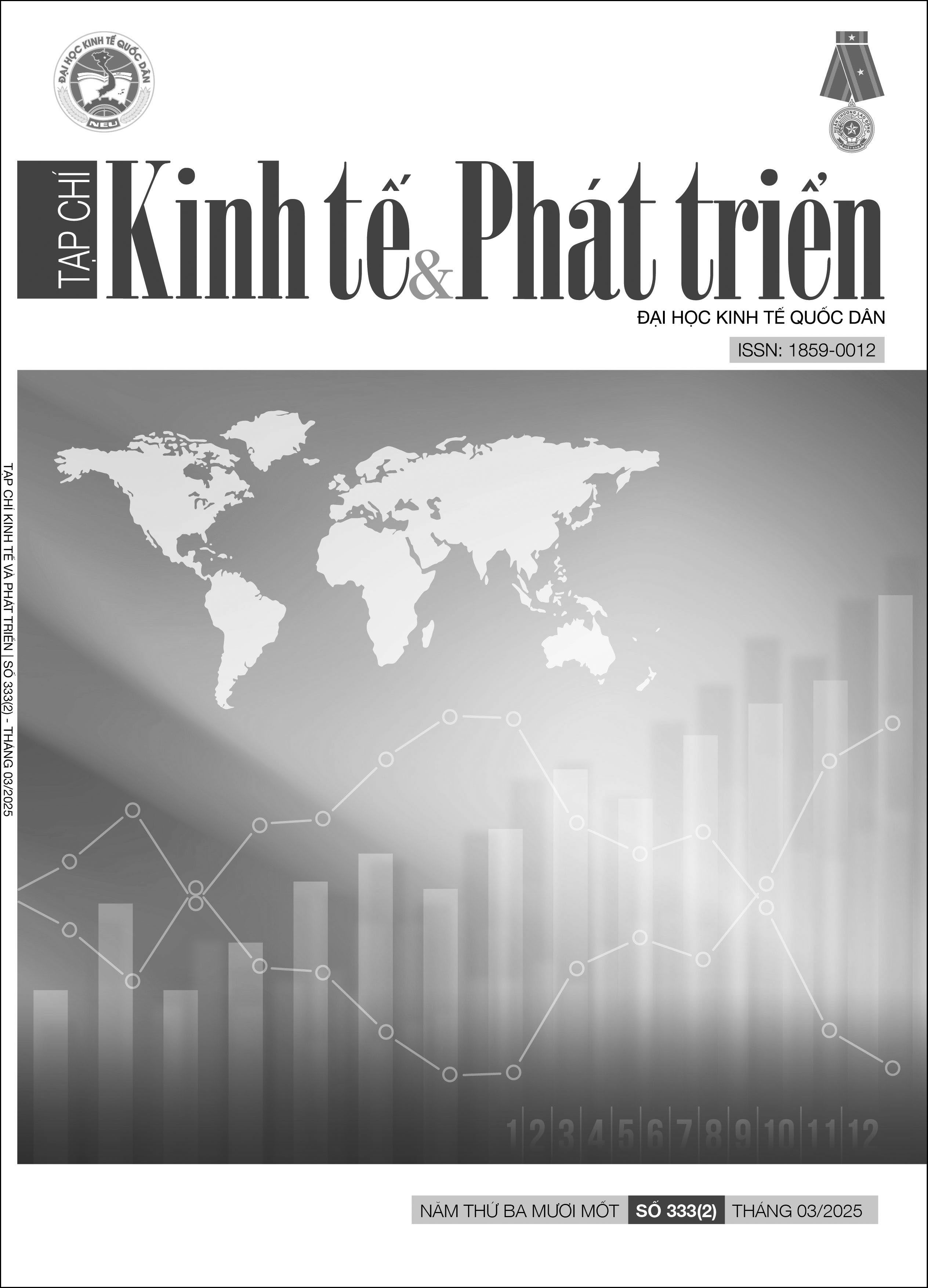Chính sách thuế thúc đẩy phát triển kinh tế tuần hoàn cho Việt Nam
DOI:
https://doi.org/10.33301/JED.VI.2180Từ khóa:
Kinh tế tuần hoàn, khung chính sách thuế, thuế tài nguyên, thuế tái sử dụng, thuế phân cấp xử lý chất thảiTóm tắt
Quá trình chuyển đổi sang mô hình kinh tế tuần hoàn là một quá trình phức tạp, đòi hỏi sự tham gia rộng rãi ở nhiều cấp độ và từ nhiều bên liên quan, có thể được thúc đẩy bởi các can thiệp chính sách phù hợp. Với vai trò là một nước đang phát triển Việt Nam đã sớm xây dựng khung chính sách bao trùm các lĩnh vực hướng tới đổi mới cách thức toàn diện phương thức sản xuất từ nâu sang xanh mà trong đó mô hình kinh tế tuần hoàn là một trọng tâm. Nghiên cứu này thực hiện phân tích nội dung và phân tích khái niệm để đưa ra một khung thuế xuất được áp dụng trong suốt vòng đời của sản phẩm để thúc đẩy phát triển kinh tế tuần hoàn ở các nước đang phát triển. Từ đó, nghiên cứu đưa ra các gợi ý chính sách cho Việt Nam gồm việc hoàn thiện thuế tài nguyên nguyên khai, miễn giảm thuế cho tái sử dụng/sửa chữa, thuế phân cấp xử lý chất thải ở giai đoạn cuối vòng đời sản phẩm.
Tài liệu tham khảo
Allwood, J.M., Ashby, M.F., Gutowski, T.G., & Worrell, E. (2011). Material efficiency: a white paper. Resources Conservation and Recycling, 55(2011), 362–381. https://doi.org/10.1016/j.resconrec.2010.11.002.
Chính phủ (2023). Nghị định số 44/2023/NĐ-CP quy định chính sách giảm thuế giá trị gia tăng theo Nghị quyết số 101/2023/QH15. Ngày 24 tháng 6 năm 2023.
Chính phủ (2022). Nghị định số 08/2022/NĐ-CP Quy định chi tiết một số điều của Luật Bảo vệ môi trường. Ngày 10 tháng 1 năm 2022.
Domenech, T. & Bahn-Walkowiak, B. (2019). Transition towards a resource-efficient circular economy in Europe: policy lessons from the EU and the Member States. Ecological Economics, 155, 7–19. https://doi.org/10.1016/j.ecolecon.2017.11.001.
Ekvall, T., Hirschnitz-Garbers, M., Eboli, F., & Śniegocki, A. (2016). A systemic and systematic approach to the development of a policy mix for material resource efficiency. Sustainability, 8(4), 373. https://doi.org/10.3390/su8040373.
Eckermann, F., Golde, M., Herczeg, M., Mazzanti, M., Zoboli, R., & Speck, S. (2015). Material resource taxation – an analysis for selected material resources. In: European Topic Centre on Sustainable Consumption and Production & European Topic Centre on Waste and Materials in a Green Economy, Copenhagen.
EEA (2013). Managing municipal solid waste—a review of achievements in 32 European countries [Report No 2/2013]. European Environment Agency, Copenhagen.
Ghisellini, P., Cialani, C., & Ulgiati, S. (2016). A review on circular economy: the expected transition to a balanced interplay of environmental and economic systems. Journal of Cleaner Production, 114, 11–32.
Hashimoto, S., Fischer-Kowalski, M., Sangwon, M., & Xuemei, B. (2012). Greening growing giants: a major challenge of our planet. Journal of Industrial Ecology, 16, 459–466. https://doi.org/10.1111/j.1530 9290.2012.00522.x.
Hartley, K., van Santen, R., & Kirchherr, J. (2020). Policies for transitioning towards a circular economy: expectations from the European Union (EU). Resources Conservation and Recycling, 155, 104634. https://doi.org/10.1016/j.resconrec.2019.104634.
International Resource Panel (2018). Re-defining value – the manufacturing revolution. Remanufacturing, refurbishment. In: Repair and direct reuse in the circular economy, United Nations Environment Programme, Nairobi.
Söderholm, Patrik & Tilton, John E. (2012). Material efficiency: An economic perspective. Resources, Conservation & Recycling, 61(C), 75-82. https://doi: 10.1016/j.resconrec.2012.01.003.
Kirchherr, J., Reike, D., & Hekkert, M. (2017). Conceptualizing the circular economy: an analysis of 114 definitions. Resources Conservation and Recycling, 127, 221–232. https://doi:10.2139/ssrn.3037579.
Nguyễn Viết Lợi & Gebauer, Henri Pierre (2020). Công cụ tài chính cho tăng trưởng xanh ở Việt Nam. Nhà xuất bản Tài chính, Hà Nội.
Milios, L. (2018). Advancing to a circular economy: three essential ingredients for a comprehensive policymix. Sustainability Science, 13(3), 861–878.
Milios, L. (2021). Towards a Circular Economy Taxation Framework: Expectations and Challenges of Implementation. Circular Economy and Sustainability, 1, 477–498. https://doi.org/10.1007/s43615-020-00002-z.
Quốc hội Việt Nam (2008). Luật số 27/2008/QH12, Luật Thuế tiêu thụ đặc biệt. Ngày 14 tháng 11 năm 2008.
Quốc hội Việt Nam (2009). Luật số 45/2009/QH12, Luật thuế Tài Nguyên. Ngày 25 tháng 11 năm 2009.
Quốc hội Việt Nam (2016). Luật số 107/2016/QH13, Luật Thuế xuất khẩu. Ngày 6 tháng 4 năm 2016.
Rizos, V., Behrens, A., van der Gaast, W., Hofman, E., Ioannou, A., Kafyeke, T., Flamos, A., Rinaldi, R., Papadelis, S., Hirschnitz-Garbers, M., & Topi, C. (2016). Implementation of circular economy business models by small and medium-sized enterprises (SMEs): barriers and enablers. Sustainability, 8(11), 1212. https://doi:10.3390/su8111212.





